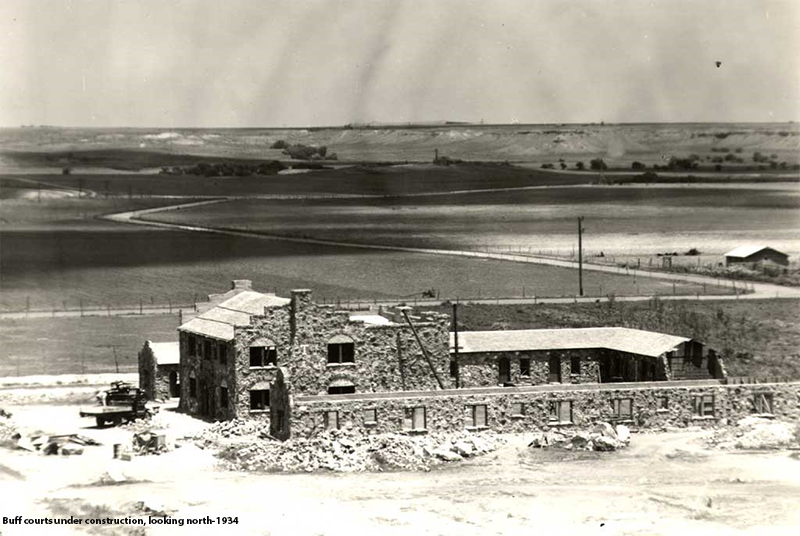
WT will be updating the long-range plan WT 125: From the Panhandle to the World. The origins of the plan began in the fall of 2016 upon my arrival with the goal to cast a vision for what West Texas A&M University should look like at our 125th anniversary in the year 2035. Committees representing multiple constituent groups were assembled beginning in the spring of 2017, and the plan was published on December 21, 2018. A gala event for 500 alumni, donors, friends, staff, faculty and community leaders was held on February 2, 2019, to unveil and launch in grand fashion the bold vision for WT. The primary aspiration of the plan was to serve the people of the Texas Panhandle first, and in that effort make WT valuable to people in other parts of Texas, our nation and beyond.
Over the past eight years, a number of new initiatives have been implemented as part of the long-range plan. What follows are some highlights of how the plan has guided our work.
The comprehensive fundraising campaign, One West, with an initial public goal of $125 million in support of people, programs and places, was initiated and reached the initial goal two years ahead of schedule and with six months remaining we have raised $160 million in endowments, program support and for facilities to a new goal of $175 million. A new doctoral degree in education leadership directed at schools in rural locations has over 100 students enrolled in less than five years and is graduating approximately 20 students per year. In an effort to reduce the sting of indebtedness and no degrees, WT has led the state in pioneering an associate’s degree available to all WT enrollees when they complete 60 hours of credit including their core curriculum requirements. A 50% off tuition and fee waiver for employees and their immediate families was created to invest in our employees and support higher education in the Texas Panhandle. Digital textbooks, at no cost to students, are now available for all core curriculum courses at WT.
Two other major initiatives in response to the long-range plan include the establishment of the Cultural Foundation of the Texas Panhandle, an advisory group helping focus and promulgate the Panhandle-Plains Historical Museum and the power of the Pioneer Amphitheater in Palo Duro Canyon State Park where the outdoor musical TEXAS has been historically performed. Additionally, the creation of The Hill Institute was established to highlight and foster the values systems of the people of the Texas Panhandle. The plan, along with information about these initiatives and others, are available on the West Texas A&M University website at wtamu.edu.
Our goal with the long-range plan is to set a clear direction and focus, provide incentives and directions for resource allocations, develop improved decision-making strategies focusing on our goals essential to our future, heighten the power and willingness of thoughtful risk-taking and flexibility in an ever-changing higher education environment and provide benchmarking to track progress as we work towards the goals outlined in the plan. A competitive advantage and focused personal and professional growth have been our aspiration, and I would say an outcome of the effort.
Forces at work in any enterprise call for constant adaptation to a changing environment, shifting priorities for meeting evolving needs, understanding goals and performance improvement for attaining those goals, instilling stakeholder confidence and finding ways to encourage innovation, all of which create the need for constant attention to vision and aspiration. Universities exist in an environment of flux. The Chronicle of Higher Education, on November 1, 2024, documented a number of cases in point: precipitous declines in white student enrollment, popular opinion regarding the value of universities and university funding challenges are a few examples.
Blind adherence to a long-range plan without critique and flexibility becomes the very worst of tradition showing a lack of the developed adaptability which highlights missed opportunities and creates a loss of motivation and morale. Good plans require constant questioning and assessment of the operational environment in which the enterprise finds itself.
WT’s long-range plan led us through many changes and shifts. The impact of COVID-19 on attendance at universities has been profound and requires a clear adaptation for any aspirational vision according to an article in The Hill. Also, Texas SB 17 eliminated the DEI offices on college campuses reinforcing my belief that every student, faculty and staff member should be treated as a unique individual with distinctive aspirations and we must be responsive to all, one-at-a-time. Additionally, a decline in the national birthrate is creating pressure on university enrollment all across the nation according to McKinsey and Company. Enrollment decline is especially challenging for regional universities away from Metropolitan areas. Public skepticism of higher education is driven by issues like Title IX restrictions and demonstrations on university campuses, people born as men competing as if they were women, and calls for violence on campuses towards particular ethnic and racial groups.
In the coming months, WT will rigorously assess the long-range plan as we move boldly into the final decade. Our aspiration will remain the same, serve locally first. We know living up to our responsibility to the people and communities as THE Panhandle’s University is appreciated and will define WT as a responsive regional research institution of higher education.
Walter V. Wendler, President of West Texas A&M University. His weekly columns, with hyperlinks, are available at https://walterwendler.com/.



